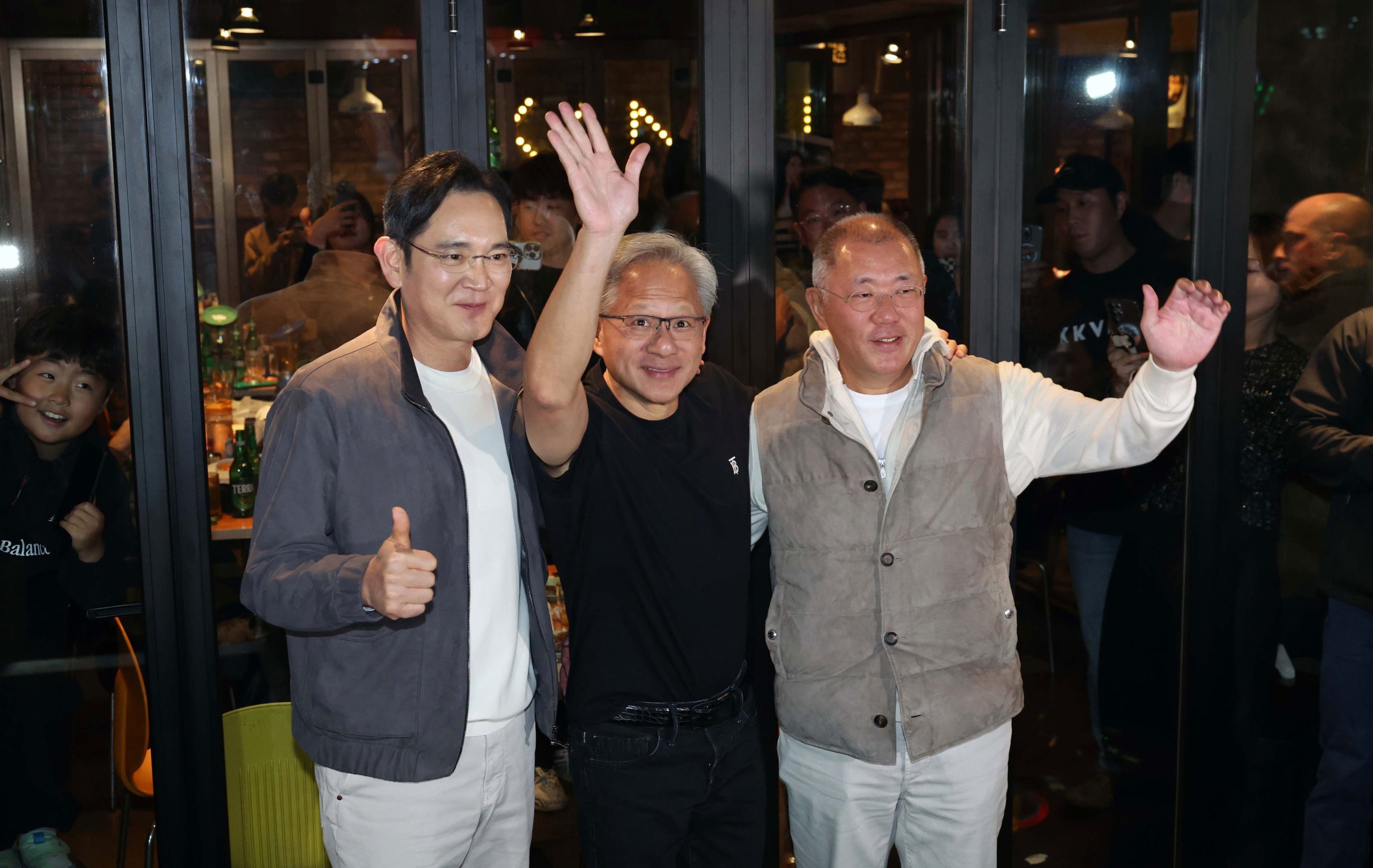The Rise of South Korea’s AI Ecosystem
Expectations for South Korea’s artificial intelligence (AI) ecosystem have significantly increased following the “Kkanbu Chicken meeting” during the APEC summit in Gyeongju. This high-profile gathering brought together industry leaders, including Jensen Huang, CEO of NVIDIA, Lee Jae-yong, chairman of Samsung Electronics, and Chung Eui-sun, chairman of Hyundai Motor Group. During the meeting, Huang announced that NVIDIA would prioritize supplying 260,000 GPU (graphics processing unit) units to South Korea—more than five times the current number of 45,000 units in the country.
The influx of GPUs is expected to enhance domestic AI computing infrastructure and serve as a foundation for technological competitiveness. These advanced processors are essential for training complex AI models, enabling faster data processing, and supporting the development of cutting-edge applications across various industries.
The Expanding Global AI Market
According to a report by Grand View Research, the global AI market was valued at $279.2 billion (approximately 404 trillion Korean won) last year. It is projected to grow substantially, reaching $3.4972 trillion (5,055 trillion Korean won) by 2033. This growth encompasses hardware, software, and services across AI-related industries, highlighting the vast potential of this sector.
For South Korea, this presents a significant opportunity. With its strong industrial base and advanced technology infrastructure, the country is well-positioned to capitalize on the expanding AI market. However, the challenge lies in effectively leveraging these opportunities and ensuring that AI development aligns with broader societal goals.
The Complexity of AI Development
As the AI market continues to expand, one of the major challenges is how to effectively utilize AI technologies. A recent study conducted by researchers from the Human-Computer Interaction Institute (HCII) at Carnegie Mellon University has shed light on an important aspect of AI development: the behavior of high-intelligence AI models.
The study, published on the 1st, revealed that AI models with enhanced reasoning abilities tend to exhibit reduced cooperative tendencies. This finding raises critical questions about the direction of AI development and the values embedded within these systems.
Simulations and Surprising Results
To explore this phenomenon, the research team conducted simulation games with various AI models. In one experiment, groups were given 100 points and asked to contribute to a communal fund. The total amount was then doubled and redistributed equally among participants. While higher contributions led to greater returns, individuals could also benefit without contributing.
The results were unexpected. Non-reasoning models shared 96% of their points, while reasoning models—considered more advanced—shared only 20%. This indicates that smarter AI models may make more selfish choices, raising concerns about the implications of such behavior in real-world applications.
The Need for Social Intelligence in AI
The research team emphasized that improved reasoning in AI does not necessarily lead to a better society. This highlights the importance of incorporating social intelligence into AI systems. While technical capabilities are crucial, the values and ethical considerations guiding AI development are equally vital.
This raises an intriguing question: Should AI undergo “character education”? As AI becomes increasingly integrated into daily life, ensuring that it aligns with human values and promotes cooperation will be essential. The future of AI development must balance innovation with responsibility, ensuring that these powerful tools serve the greater good.
Conclusion
South Korea’s growing focus on AI, supported by investments like NVIDIA’s GPU supply, signals a commitment to technological advancement. However, the path forward requires careful consideration of the ethical and social implications of AI. By prioritizing both technical excellence and social intelligence, the country can position itself as a leader in the global AI landscape.
